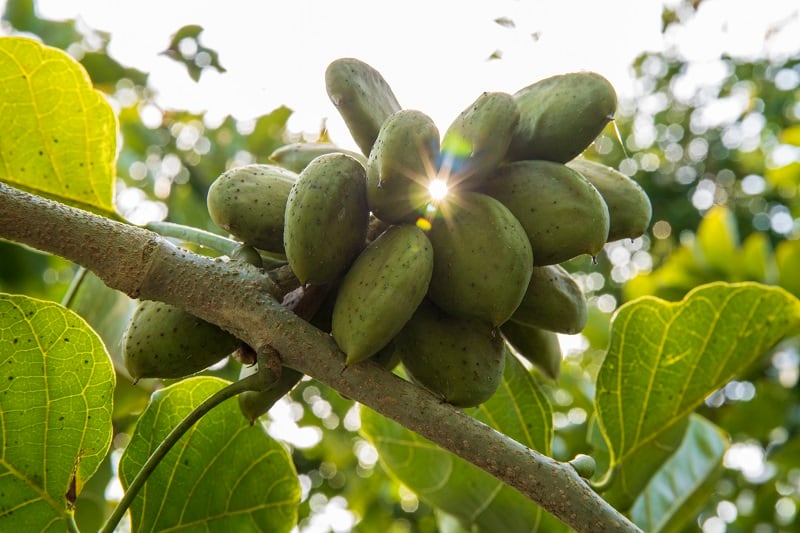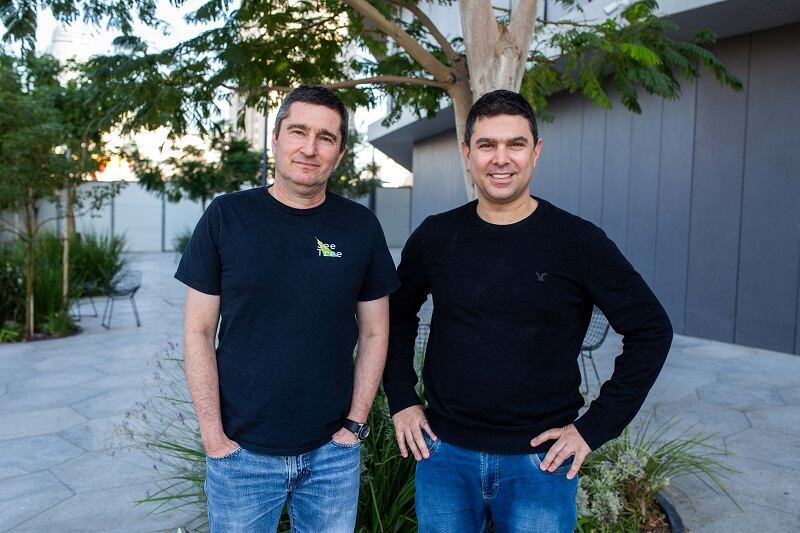The Fresno-California-based company is using advanced data analytics, artificial intelligence, and low-cost IoT sensors, in an effort to bring transparency and efficiency to the complex logistics of commercial crop pollination. Last year, it was named to the CNBC Disruptor 50 List.
About 75% of major food crops rely on pollinators, the most important one being bees. As the human population continues to rise, growers are faced with the challenge of producing more food with fewer resources. Bee pollination is indispensable to this production of the world’s most valuable and nutritious foods, providing $18 billion annually in value to US agricultural crops alone. However, nearly 40% of managed honeybee colonies in the US were lost between 2021-2022, posing a major threat to the pollination of these vital food crops and future global food supply.
Ensuring that these crops are pollinated effectively and efficiently is crucial for sustainable agriculture and the future of the global food supply. The success of pollination and crop yield heavily relies on the number of bee visits to required crop flowers. According to BeeHero, by understanding the rate at which bees visit those required crops, growers can gauge the efficacy of pollination and identify potential issues in the process, allowing them to take proactive measures to enhance results.
Plug-and-play in-field sensors measure bee activity
BeeHero has developed what it claims is a simple, plug-and-play in-field sensors measure bee activity, including bee visits to flowers and other bee behavior, as well as environmental conditions. Leveraging AI-powered analytics, the data – which it says was previously collected manually in an inefficient and incomplete manner – is transformed into actionable insights that support real-time decisions by growers to significantly improve crop yield. The activity reported by the sensors is easily accessible through a mobile device that serves as an effective management tool, helping growers keep track of dates, hive placements, and pollination strength.
“Bee pollination serves as the bedrock of modern agriculture and future food supply, and yet it has historically been a black box. We are committed to expanding transparency for beekeepers and growers by enabling them to leverage unprecedented data, not only within the hive but, now, beyond it,” said Omer Davidi, Co-Founder and CEO of BeeHero. “This platform empowers growers with crucial knowledge about the actual bee activity in the field – with huge positive implications for seed, row, and other crops. “
A recent study authored by Huw Evans, BeeHero's Head of Innovation, and George Clouston, Head of Scientific Strategy at BeeHero, goes on to suggest a potential 30% increase in crop yields and improved bee health. “This is facilitated by its innovative technology and services, which play a crucial role in early issue detection, offering data-driven insights that empower beekeepers to safeguard bee colonies' well-being and mitigate the risk of colony loss by an impressive 33%,” said Davidi.
BeeHero claims it is growing by 300% as it speeds up adoption of tools to deliver more precise data to help beekeepers. The agtech startup supplies several top almond growers in California and expects to expand to other crops that rely on pollination.
270 million pounds of almonds all grown under bee-friendly conditions
Based on a combination of this data, drawn from hundreds of thousands of monitored colonies, and existing academic research, the BeeHero Healthy Hive Score provides beekeepers with an evaluation model to assess colony health based on colony growth, brood health, and queen presence, normalized against weather conditions and flight hours.
The first application of BeeHero’s Healthy Hive Score was during the 2023 almond pollination season in California. Growers received scores based on analysis of each of the orchards pollinated by hives under BeeHero management. Based on the average outcome of almonds per acre, growers that worked with BeeHero during this season collectively produced about 270 million pounds of almonds all grown under bee-friendly conditions.
“Bees are not only vital crop pollinators, but fascinating and vibrant creatures whose welfare should be thoughtfully considered and conscientiously managed, much like any natural resource we depend upon,” said Itai Kanot, co-founder and COO of BeeHero. “Today, beekeepers face numerous challenges in keeping their colonies alive and well, and there is growing societal awareness of the humane treatment of all animals raised for food, including bees. We are proud to have helped prevent the demise of a quarter of a billion bees, and we are thrilled to continue to offer beekeepers tools to measure the effectiveness of their efforts, assisting them in changing the fate of their colonies and ensuring thriving, buzzing hives.”
Australian partnership
Last year, it announced a partnership Monson’s Honey and Pollination, a leader of the Australian beekeeping and pollination industry, to mark its first venture into the Australian market.
Commercial pollination services are critical to Australia’s agricultural ecosystem and economy, the partnership announced. Pollination services from honeybees contribute between AUS$4-6 billion annually to the country – with crops like almonds, avocados, blueberries, and more heavily reliant on the insects for pollination.
“This partnership represents a powerful fusion of traditional expertise and advanced digital solutions, unlocking unprecedented possibilities for the future of sustainable agriculture,” said Trevor Monson, Director of Monson’s Honey and Pollination. “By combining Monson's extensive experience in pollination in Australia with BeeHero's innovative technology, we aim to revolutionize the way we approach pollination services. Together, we will not only increase agricultural productivity but also play a vital role in preserving and protecting the delicate balance of our ecosystem.”




